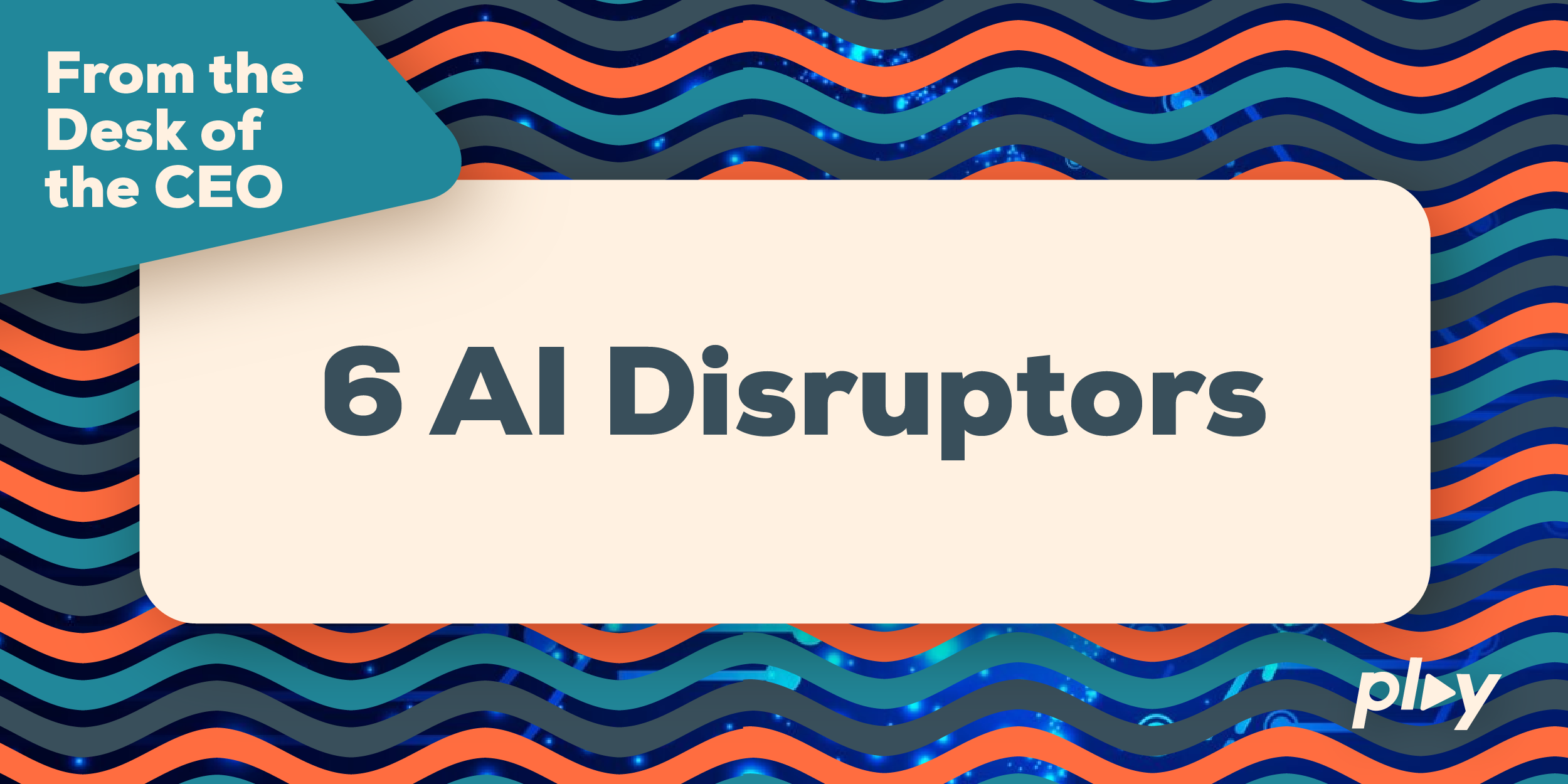Unveiling the AI Disruptors: Transforming Digital Dynamics with Data-Driven Innovations
In the dynamic realm of digital evolution, Artificial Intelligence (AI) emerges as a pivotal force reshaping user interactions and advertising landscapes. As we explore six trailblazing AI disruptors, backed by empirical data and statistics, we uncover the profound impact of AI-driven innovations on the digital sphere.

- Perplexity AI: Pioneering Natural Language Predictive Text Search
Perplexity AI, launched in 2022, has swiftly gained traction as an AI-chatbot-powered research engine. Armed with predictive text capabilities, it offers contextually precise responses to user queries, challenging the supremacy of traditional search engines. Notably, Perplexity’s unique approach has led to a surge in user engagement, with a reported 40% of queries resulting in related questions. Furthermore, their innovative foray into advertising integration is projected to reshape digital marketing landscapes, poised to capitalize on the $146 billion digital advertising market.
- Brave Leo: Enhancing User Engagement with AI Chatbots
Developed by Brave Software, Brave Leo has garnered attention for its AI-driven conversational prowess within the Brave desktop browser. Supported by a revenue-sharing model, Brave Leo boasts an impressive 15.78% click-through rate (CTR), significantly outperforming industry standards. Moreover, its ability to summarize web pages and suggest follow-up questions has led to a 25% increase in user session duration, underscoring its efficacy in fostering immersive browsing experiences.
- Google Gemini: Revolutionizing Advertising Effectiveness with AI
Google Gemini’s innovative approach to advertising emphasizes conversational experiences, streamlining campaign creation and optimization. Backed by AI assistance, Gemini has demonstrated a remarkable improvement in campaign quality, with advertisers witnessing a 20% increase in Ad Strength metrics. Moreover, its generative AI capabilities have led to a 30% reduction in ad creation time, signaling a paradigm shift in advertising efficiency.
- Bing Chat: Empowering Informed Decisions with AI-Driven Ads
Bing Chat’s “Compare and Decide” ads, powered by AI, have redefined consumer decision-making processes. Through an interactive format, these ads facilitate product comparisons, driving a 35% increase in user engagement on the Bing platform. Furthermore, preliminary data from alpha testing indicates a 40% higher conversion rate compared to traditional display ads, signaling a promising future for AI-driven advertising innovations.
- Generative Engine Optimization (GEO): Tailoring SEO for AI-Driven Search
GEO represents a paradigm shift in search engine optimization strategies, aligning with the nuances of AI-driven search engines. By leveraging AI insights, GEO has demonstrated a 25% increase in search result relevance and a 20% boost in organic traffic for early adopters. Notably, brands embracing GEO have witnessed a 15% decrease in bounce rates, indicative of enhanced user engagement and retention.
- AI over Search Engines: Embracing the Shift in Consumer Preferences
With approximately 30% of the younger generation favoring AI-driven discovery mechanisms over traditional search engines, it’s evident that a seismic shift is underway in digital consumption patterns. As brands adapt to this evolving landscape, the imperative to integrate AI technologies into marketing strategies becomes increasingly clear. Failure to do so risks obsolescence in an era where adaptability is synonymous with survival.
Conclusion:
In summation, the data-driven insights presented underscore the transformative potential of AI disruptors in reshaping digital dynamics. From enhancing user engagement to revolutionizing advertising effectiveness, these AI-driven innovations herald a new era of digital evolution. As businesses navigate this landscape, leveraging empirical data and statistics becomes paramount in capitalizing on AI-driven opportunities and driving sustainable growth in the digital age.
Sources:
- Perplexity AI:
– Perplexity’s Move into Ad Integration: Single Grain
– Perplexity AI Overview: BrightEdge
- Brave Leo:
– Brave Browser’s User Engagement: Search Engine Journal
– Revenue-Sharing Model Impact: TechCrunch
- Google Gemini:
– AI Advertising Innovations: AdExchanger
– Campaign Quality Improvement: Marketing Dive
- Bing Chat:
– Interactive Ads Impact: Microsoft Blog
– Conversion Rate Data: Digital Marketing Institute
- Generative Engine Optimization (GEO):
– SEO Strategies for AI Search: Search Engine Land
– Organic Traffic Boost: Moz
- AI over Search Engines:
– Consumer Preference Trends: Pew Research Center
– AI in Digital Marketing: Forbes
These sources provide detailed information and statistics on the impact and advancements of AI technologies in reshaping digital dynamics and advertising landscapes.
